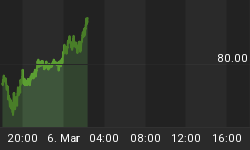In good times, Silicon Valley is the kind of place we all fantasize about: Shiny new buildings full of genius techies rollerblading down the halls, eating free gourmet food and growing richer with each financing round.
But in bad times it resembles that Florida housing subdivision in The Big Short, where the buildings remain but most of the people have been forcibly relocated.
Which brings us to the sudden unicorn die-off. These are the fabled tech start-ups that -- often before generating any sales or profits -- achieve valuations of $1 billion or more. That there were dozens of them in 2015 seemed, well, idiotic. And now they're looking like dot-coms circa 2000 -- which is to say moribund. Here's an excerpt from a much longer Wall Street Journal piece chronicling the process:
For Silicon Valley, the Hangover Begins
A year ago, startups with nascent business models were scoring billion-dollar valuations as investors raced each other to write checks. Today, venture capital is drying up for less successful startups. Investors, eyeing collapsing tech stocks and economic sloth, are culling their portfolios and forcing cash-starved companies to retrench or shut down.
These changes are eroding the idea that drives Silicon Valley's economy: Work hard, secure venture capital and get rich. With valuations falling, the other side of the equation is reappearing: Failure is often just around the corner.
Rory O'Driscoll, a partner with venture firm Scale Venture Partners, likens the mood today to the moment after the Titanic hit an iceberg. "No one wanted to jump into the lifeboats right away," he said. Some hesitated. The smart companies are cutting expenses and raising capital if they can. "You've got to make a quick decision now."
Investors funded fewer U.S. startups in the fourth quarter than any period in more than four years. Since November, at least a dozen tech companies, which combined raised well over $2 billion in venture funding, have announced layoffs, letting go hundreds of people that in most cases represented at least 15% of their staffs. Other companies are closing money-losing projects and raising debt to tide them over. Some companies are raising funding by selling shares at lower prices than they had in earlier rounds. Such "down rounds" can hurt a startup's chances at recruiting and discourage employees who are often paid with stock options. Some startups are turning to debt, which lets them raise money without setting a lower price for their equity--ducking for the moment a potential reckoning with investors.
Some startups are also looking to sublease unused office space, and tech layoffs suddenly are commonplace. Last week, Eric Setton, co-founder and chief executive of messaging app maker TangoMe Inc., said he was cutting 20% of its staff to "create a sustainable business." Less than two years earlier, the Mountain View, Calif., company raised $280 million in financing led by Alibaba Group Holding Ltd. at a $1 billion valuation.
This means several things:
The flow of IPOs will diminish. From the above WSJ article:
"Half of the U.S. companies that raised money at valuations over $1 billion in the fourth quarter did so after agreeing to special IPO protections, according to a study by law firm Fenwick & West. These terms either allow investors to block a public offering below a certain share price, or granted them additional shares in the company if the IPO price is too low. A quarter of companies agreed to such terms in last year's second quarter and 35% in the third quarter."
In other words, it's going to be harder for these companies to cash out by going public if doing so causes losses for early investors, because the early investors have the legal right to stop it. Not that there's much demand for tech IPOs in any event: See Technology stocks selloff may turn IPO chill into IPO freeze which features this fairly amazing chart:

The Bay Area real estate bubble will burst. At $1.2 million, the price of the average house in San Francisco and environs now dwarfs the average resident's income -- thanks in part to all the outside money flowing into tech start-ups. That flow is now down to a trickle, which will soon kick the legs out from under the local housing market. According to the always-interesting Dr. Housing Bubble, San Francisco housing has begun a very familiar roll-over and should be falling by year-end:

More banking turmoil. A whole lot of loans are connected one way or another to those sudden Silicon Valley fortunes. And banks really can't afford any more stress. The oil bust would by itself be enough to threaten the existence of some brand name lenders. Toss in tech and high-end real estate busts, and the recent turmoil at B of A and Deutsche Bank will seem like the calm before the storm.
Another down leg for stocks. First the commodities complex imploded. Then the banks hit a rough patch as zero interest rates and flattening yield curves caused margins to evaporate. And now tech, one of the economy's few remaining bright spots, is entering another cyclical bust. The result? Shell-shocked investors will start wondering why they bother if whatever they jump into is just going to tank. Much safer -- and less intellectually taxing -- to just hide out in cash and gold. Hence the recent surge in demand for precious metals and high-denomination dollar and euro notes.


















